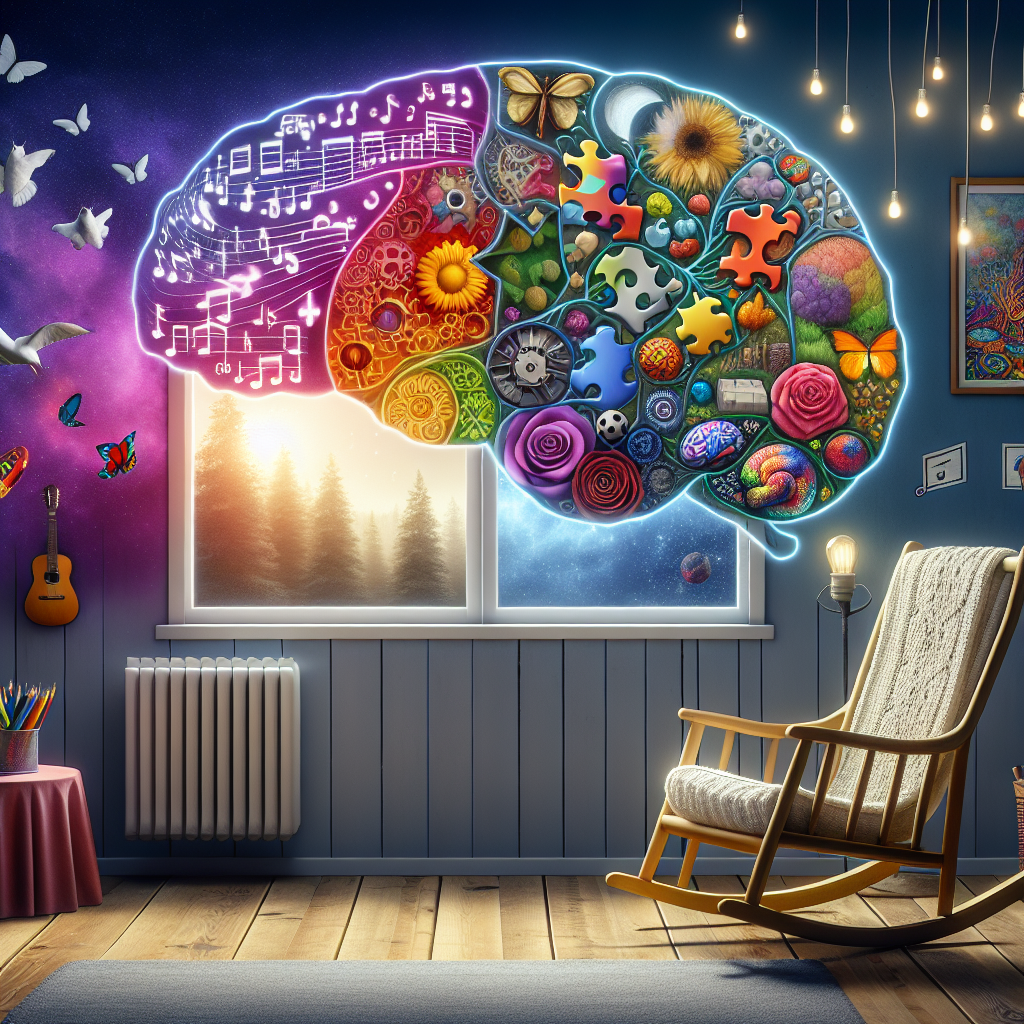What Do People with Autism Like Doing? Exploring Interests
Discover what people with autism like doing, their interests, and activities that engage them. Explore now for insights and inspiration! Autism is a spectrum, and while individuals with this condition share similarities, their preferences and likes can be as diverse as the colors of the rainbow. Understanding what do people with autism like doing can help us tailor experiences that are engaging and meaningful for them.
People with autism often have unique perspectives, which can lead to special interests that capture their imagination. Some might gravitate toward visual arts, while others may find joy in music, technology, or even collections focused on specific themes. By supporting these interests, we can not only enrich their daily lives but also foster a sense of belonging and understanding.
But what do people with autism like doing on a day-to-day basis? In this article, we’ll dive deep into the world of individuals with autism and explore their diverse range of interests and favorite activities. Together, we can broaden our understanding and appreciation of the richness that individuals with autism bring to society.
Understanding Interests in Autism: A Personal Perspective
The question of what do people with autism like doing is often answered through a deeply personal lens. Every person on the spectrum has distinct preferences shaped by their experiences, environment, and neurological makeup. Some individuals may have intense focus on a particular topic or activity, often referred to as a “special interest.” These interests can manifest in various ways, whether it’s a fascination with trains, a love for coding, or a passion for painting.
Many individuals on the spectrum may express a strong inclination towards structured activities. These structured experiences often provide a sense of comfort and predictability, helping to manage anxiety. Thus, what do people with autism like doing can frequently include arts and crafts, puzzles, or any tasks that allow a clear framework for creativity. Based on various studies and anecdotal evidence, here’s a closer look at common areas where individuals with autism thrive:
- Arts and Crafts: Many individuals find joy in creating visual art. The simple act of drawing, painting, or crafting can be a beautiful therapeutic outlet.
- Music: Another prevalent interest is music. Whether it’s playing an instrument or listening to favorite tracks, music can serve as an emotional anchor and a means of expression.
- Technology: With the rapid growth of technology, many individuals on the autism spectrum love exploring computers, software, and even video games—often displaying remarkable skills in programming or gaming.
- Nature Activities: Nature walks, birdwatching, or simply enjoying the outdoors can provide a calming, enriching experience.
- Collecting: Many individuals have a penchant for collecting items, whether we’re talking about stamps, coins, models, or anything that tickles their fancy.
In sum, the interests of individuals with autism can vary widely but tend to focus on areas they are passionate about. What do people with autism like doing? It often revolves around community engagement, artistic exploration, and even individual pursuits that highlight their unique skills.
Social Activities: Building Connections and Bonds
Another crucial aspect of understanding what do people with autism like doing involves social interactions and activities. Social skills can be one of the challenging areas for individuals on the spectrum; however, this doesn’t mean that they don’t enjoy social experiences. In fact, once they find their preferred settings, many people with autism find substantial enjoyment in participating in group activities.
Games are often a fantastic way to bridge connections. Board games, card games, and even video games can provide a structured social environment where participants can come together around a shared interest. It’s fascinating to watch how friendly competition or teamwork can bring individuals out of their shells and foster dialogues. This social dynamic greatly enriches the camaraderie, reflecting what do people with autism like doing within the realms of community.
Moreover, clubs, workshops, and specialized classes tailored for individuals on the spectrum can enhance their social experiences. Such environments typically are less intimidating, allowing participants to engage with peers who understand nuances similar to their own experiences. Activities like art classes, cooking sessions, or even drama clubs can be incredibly appealing, allowing individuals to explore their creativity while connecting with others.
Let’s delve into some popular social activities that resonate with many people with autism:
- Group Art Projects: Collaborative art allows individuals to express themselves and bond, often leading to shared projects that reflect their collective interests.
- Game Nights: Regular game nights create a routine that helps individuals have fun while developing social skills and camaraderie.
- Outdoor Adventures: Group outings focused on nature, such as hiking or picnics, provide both relaxation and social interaction.
- Music and Dance Events: Participating in group music sessions or dance classes can empower individuals to explore rhythm and interaction.
- Animal Therapy: Engaging with animals in guided settings can foster connections, as animals offer nonjudgmental companionship.
Social activities, when aligned with interests, can play a pivotal role in enhancing the lives of individuals with autism. What do people with autism like doing when it comes to social interactions? Finding shared pursuits not only enriches their experiences but also builds friendships and networks that positively impact well-being.
Tailored Activities: Supporting Individual Interests
While general preferences in social and leisure activities are important, what do people with autism like doing often hinges on the recognition of their individual likes and dislikes. Tailored activities allow for greater satisfaction and engagement. It’s essential to note how unique each individual can be, which is why offering a range of options can help in determining the right avenues for enjoyment.
Many individuals with autism flourish in environments where they can engage in activities at their own pace. This self-directed involvement can boost their confidence and allow them to dive deeper into their chosen interests. For example, an individual passionate about painting can be encouraged to take their artwork further through individual projects or exhibitions.
To support diverse interests, consider organized workshops that focus on skills development in specific areas. Some ideas might include:
- Technology Workshops: Teaching coding or robotics through hands-on experiences can spark curiosity and innovation.
- Art Exhibitions: Encouraging participation in community art shows allows individuals to showcase their work, gaining acknowledgment and pride.
- Sports Teams: Inclusive sports programs can help individuals explore physical activity in a supportive environment.
- Yoga or Meditation Classes: These classes can be great for providing calming techniques and enhancing self-awareness.
- Creative Writing Groups: Encouraging expression through words can help individuals articulate their thoughts and feelings.
In summary, what do people with autism like doing tends to reflect a blend of personal interests and support structures. Tailored activity programs should aim to enrich the experiences of individuals on the spectrum by promoting independence, skill development, and creativity.
Conclusion: Embracing Diversity in Interests
Understanding what do people with autism like doing requires an appreciation for diversity and individuality. No two people on the autism spectrum are alike, and their interests can range dramatically. From arts and crafts to technology and social gaming, involving individuals with autism in the activities that resonate with them is crucial.
By creating supportive environments that value personal passions, we can enhance their overall quality of life, unity, and engagement within the community. So whether you’re a family member, friend, educator, or professional, reflecting on what do people with autism like doing can guide you in fostering meaningful experiences. Bringing joy and satisfaction into their lives enriches not just their existence, but also the vibrant tapestry of our collective humanity.
FAQs
- What are common interests among people with autism?
Common interests may include arts and crafts, technology, music, and collecting items like stamps or toys. - How can I support someone with autism in their interests?
Encourage their passions by joining them, providing resources, or helping them find classes and groups centered around those interests. - What role does routine play in the interests of individuals with autism?
Routines can provide a sense of stability and comfort, allowing individuals to engage in their chosen activities without anxiety. - How important is social interaction for individuals on the spectrum?
Social connections can be incredibly valuable; they help build community and provide a support network while enhancing social skills. - Can interests change over time for people with autism?
Yes! Just like anyone, interests can evolve based on experiences, exposure, and personal growth.





